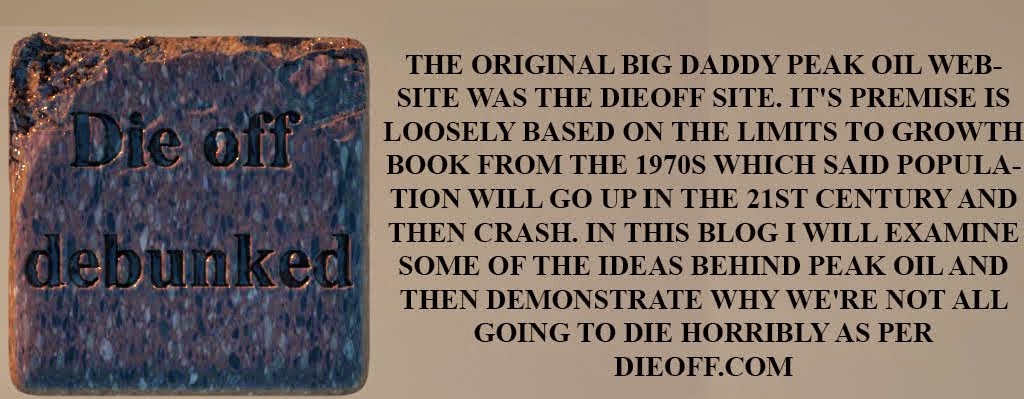On some of the more malthusian peak oil sites there is the theme that not only are we facing peak oil, but also peak fertilizer, peak gas, peak coal etc, along with peak mineral extraction. Others rant about the "limits to growth". I started wondering exactly how much resource we really have extracted.
One way of looking at this would be to ask some questions.
For example: Is the Earths crust uniform or are there nodes where minerals or useful resources are concentrated?
In fact, history shows that we have concentrations of minerals and they are mined or extracted by wells such as is the case with oil or gas.
Which gets me to thinking? Is it reasonable to assume that even if we use up a lot of the oil and gas which cannot form at lower depths, is this true for other resources?
The answer to that is no. Other minerals and especially metals (such as for example, lithium or manganese) do not require special temperature and pressure gradients to exist. They will be found all through the Earth's crust.
So: How deep is the deepest mine we have yet drilled?
Our friend google returns the answer of 3800 meters.
That, I should point out is not the average depth of mines, it is the DEEPEST YET DUG.
So what is the depth of the Earth's crust?
40,000 meters.
Seems we haven't even reached 10% of the Earths "limits to growth".
It's quite possible that you can't have infinite growth on a finite world, but we're nowhere near the limits.

2 comments:
Never mind that metals, unlike oil, are very much recyclable. This, sadly, seems to miss the "peak everything!" types.
There's a number of resource-rich countries who's treasures haven't been fully extracted: South American, African and Central Asia countries; plus there's the someday reality of deep underwater mining (this is further down the road), nanotechnology, or design/engineering paradigm shifts such as substituting other materials for platinum with fuel cell catalyst and even the eventual path to the moon.
Post a Comment